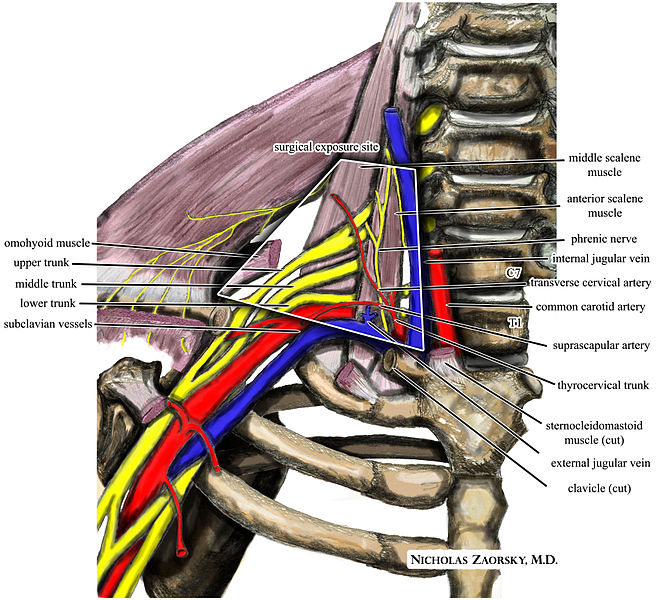Thoraic Outlet Syndrome Q & A
Thoracic outlet syndrome refers to a group of conditions that occur when the nerves or blood vessels that run through your thoracic outlet, which is found between your collarbone and first rib, get compressed. This condition can develop after an injury, during pregnancy, or from an anatomical defect.
Thoracic outlet syndrome is categorized based on the blood vessels and nerves affected. The types include:
Neurogenic thoracic outlet syndrome
This type of thoracic outlet syndrome develops when your brachial plexus becomes compressed. The brachial plexus is a group of nerves that provides sensation and muscle movement in your arm, shoulder, and hand. This is the most common type of thoracic outlet syndrome.
Vascular thoracic outlet syndrome
Vascular thoracic outlet syndrome develops when the blood vessels that run through the thoracic outlet get compressed.
Nonspecific-type thoracic outlet syndrome
This type of thoracic outlet syndrome doesn’t have a definitive cause but is characterized by pain in the thoracic outlet that may feel worse with movement.
Symptoms of a thoracic outlet syndrome may vary depending on the type you have. You may experience pain, numbness, or muscle wasting. If you suspect you have symptoms that may indicate thoracic outlet syndrome, call *** Clinic for an evaluation.
Thoracic outlet syndrome can be difficult to diagnose because the symptoms can vary in both type and severity. Your specialist at *** Clinic is familiar with the disorder and conducts comprehensive examinations to determine the underlying cause of your symptoms.
Your examination may include:
- Review of your symptoms
- Physical exam
- Provocation test to reproduce symptoms
Diagnostic imaging may also be recommended to confirm or rule out thoracic outlet syndrome.
Treatment for your thoracic outlet syndrome may depend on the underlying cause. Your specialist develops a personalized treatment plan to relieve the compression and resolve your symptoms. Your treatment plan may include:
- Physical therapy
- Pain medication or anti-inflammatories
- Muscle relaxants
- Clot-dissolving medications
If you’re unable to get relief from your symptoms with conservative treatments, your specialist may recommend surgery to relieve the compression and your symptoms.
Thoracic outlet syndrome is a treatable condition that can be difficult to diagnose. To get answers to your health concerns and questions, call *** Clinic today or request an appointment online.

